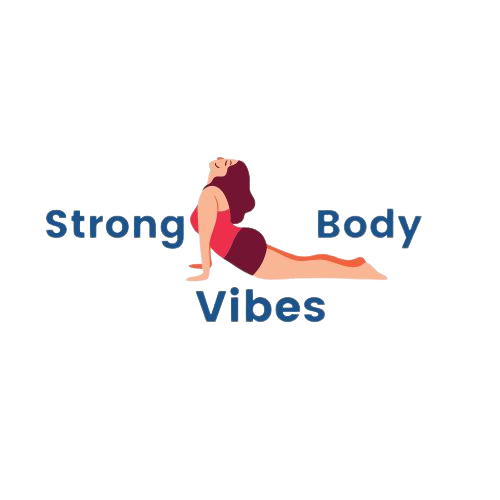When your heart skips a beat, it can be quite the surprise. But before you start panicking, it’s important to know that not all skipped heartbeats are cause for concern. In fact, they’re quite common and can happen for a variety of reasons.
We’ll explore why your heart might skip a beat, what it means, and when you should seek medical attention. So, take a deep breath and let’s dive into the world of heart palpitations.
When Your Heart Skips a Beat: What’s Happening and Should You Worry?
When your heart skips a beat, it can be a cause for concern and leave you wondering what is happening. In this article, we will explore the phenomenon of heart palpitations, why they occur, and when you should worry about them.
We will also discuss treatment and prevention strategies, as well as lifestyle changes for promoting heart health. Understanding and managing heart palpitations is crucial for maintaining overall cardiovascular well-being.
Heart Palpitations
Heart palpitations refer to the sensation of a skipped or irregular heartbeat. While it can be alarming, it is usually harmless. The electrical impulses that control your heart rhythm may deviate from the normal pattern, resulting in palpitations.
These impulses can cause sensations such as a skipped beat, fluttering, thumping, or a bang in your chest.
Symptoms of Heart Palpitations
Heart palpitations can manifest in various ways. Some common symptoms include feeling a skipped beat, fluttering, or a rapid heartbeat.
You may also experience shortness of breath, dizziness, lightheadedness, chest discomfort, fatigue, or swelling in your legs. It is important to pay attention to associated symptoms to determine if further evaluation is necessary.
Types of Heart Palpitations
There are different types of heart palpitations that can occur. Some palpitations are harmless and occur due to factors like caffeine or alcohol use, dehydration, exercise, illness, poor sleep, or stress and anxiety.
However, palpitations can also be associated with more serious conditions such as atrial fibrillation, heart disease, or cardiomyopathy. Identifying the type of palpitations you are experiencing is crucial for determining the appropriate response.
Causes of Heart Palpitations
Heart palpitations can have various causes. Caffeine and alcohol use can stimulate the heart and lead to palpitations.
Dehydration can disrupt the electrolyte balance in your body and affect heart rhythm. Exercise can temporarily increase heart rate and cause palpitations. Illness, poor sleep, and stress and anxiety can also trigger palpitations.
Additionally, conditions like atrial fibrillation, heart disease, and cardiomyopathy can cause palpitations.
When to Worry About Heart Palpitations
While occasional heart palpitations are usually harmless, there are situations where you should be concerned.
If you experience frequent or persistent palpitations, or if they are accompanied by troubling symptoms like difficulty breathing, lightheadedness, chest discomfort, fatigue, or swelling in the legs, it is important to seek medical attention.
Changes in lifestyle or medication, as well as the presence of new medical conditions, may also indicate the need for medical evaluation.
Treatment and Prevention
Treatment and prevention strategies for heart palpitations depend on the underlying cause. For harmless palpitations, home remedies such as breathwork techniques and vagal maneuvers can help calm the palpitations.
Medical interventions may be necessary for more serious cases. Preventive measures aimed at promoting heart health, such as a healthy diet, regular exercise, stress management, and maintaining a healthy weight, can also play a significant role in reducing the occurrence of palpitations.
Managing Anxiety and Stress
Anxiety and stress can contribute to heart palpitations. Understanding the impact of these factors on heart health is important in managing palpitations.
Various stress-reduction techniques, such as meditation, deep breathing exercises, yoga, and engaging in hobbies or activities you enjoy, can help alleviate anxiety and stress. Developing coping mechanisms and seeking support from loved ones can also be beneficial.
The Connection Between Heart Palpitations and Other Health Conditions
Heart palpitations can be associated with other health conditions. Atrial fibrillation is a common irregular heart rhythm that can cause palpitations.
Heart disease, including conditions like coronary artery disease and heart failure, can also contribute to palpitations. Cardiomyopathy, which weakens the heart muscle, can manifest as palpitations.
Understanding the link between palpitations and these conditions is essential for proper diagnosis and management.
Diagnosing Heart Palpitations
To diagnose heart palpitations, a medical evaluation is usually required. This may involve a physical examination, an electrocardiogram (ECG) to record your heart’s electrical activity, a Holter monitor for 24-hour monitoring of your heart rhythm, an event monitor for longer-term monitoring, an echocardiogram to assess the structure and function of your heart, and blood tests to check for any underlying conditions.
Lifestyle Changes for Heart Health
Making lifestyle changes can significantly improve heart health and reduce the occurrence of palpitations.
Adopting a healthy diet that includes plenty of fruits, vegetables, whole grains, lean proteins, and limited processed foods can support cardiovascular well-being.
Engaging in regular exercise, avoiding smoking and excessive alcohol use, managing stress, and maintaining a healthy weight are also important factors in promoting heart health.
Heart palpitations can be concerning, but understanding their causes, when to be worried, and how to manage them can alleviate anxiety and promote heart health. While occasional palpitations are usually harmless, frequent or persistent palpitations, especially when accompanied by troubling symptoms, warrant medical attention.
With proper diagnosis, treatment, and lifestyle changes, you can live well with heart palpitations and maintain overall cardiovascular well-being. Remember to seek help when needed and prioritize your heart health.

